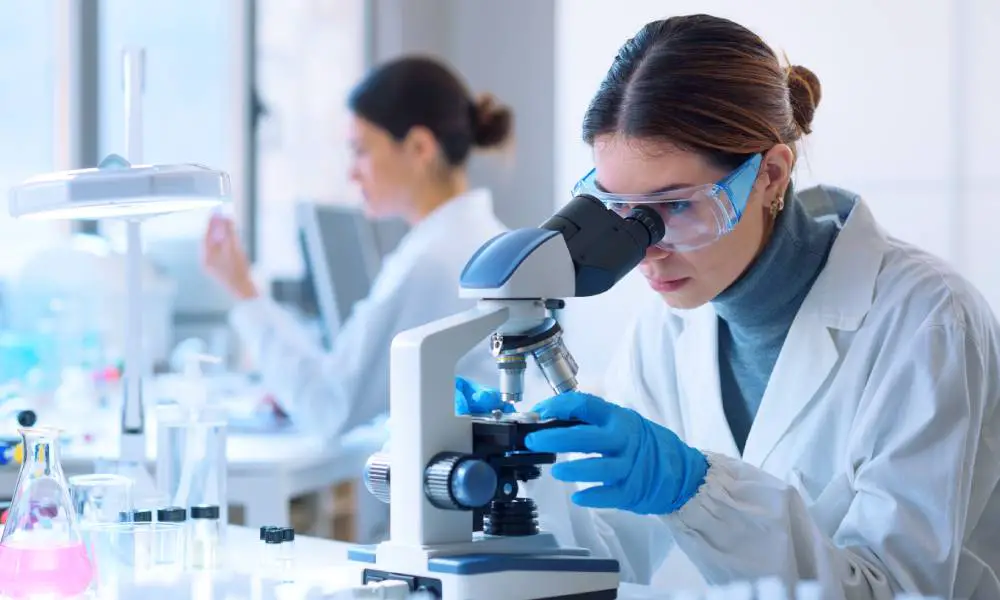

Laboratories are essential spaces for innovation and discovery, but improper safety measures can lead to serious accidents. This guide covers five lab safety best practices to avoid accidents, providing actionable tips to maintain a secure and efficient lab environment. Keep reading to learn how to protect yourself and your team while you are working.
The foundation of lab safety starts with wearing appropriate personal protective equipment (PPE). This includes lab coats, gloves, goggles, and closed-toe shoes. Each piece of equipment is designed to protect against hazards like chemical splashes, sharp objects, and heat. Every member of the lab should have PPE that they wear whenever they are working. Keep in mind that PPE only works when worn properly. Always ensure PPE fits correctly to maximize its effectiveness.
Proper chemical handling is crucial to prevent accidents, whether you’re working with corrosive acids or flammable solvents. Carefully read safety data sheets (SDS) before using any substance, and never mix chemicals unless explicitly instructed. Always handle chemicals in well-ventilated areas, preferably using fume hoods, to minimize exposure to harmful vapors.
Proper waste disposal is critical to maintaining lab safety. Segregate chemical waste according to guidelines provided by your organization or local authorities. Improper disposal can lead to chemical reactions, environmental harm, and legal consequences. Alwayswaste containers clearly and schedule regular waste pickups to avoid accumulation.
Every lab worker must be well-versed in emergency preparedness. Know the location and usage of safety showers, eyewash stations, and fire extinguishers. Make sure emergency exits are always marked and unobstructed. Conduct regular safety drills to ensure everyone in the lab understands how to respond effectively during an emergency.
Cluttered workspaces increase the likelihood of spills, trips, and other accidents. Always clean up spills immediately using appropriate cleaning materials and avoid leaving tools or chemicals unattended. Organized workspaces also improve productivity, allowing you to complete tasks more efficiently without compromising safety.
Prioritizing lab safety prevents accidents and enhances productivity and collaboration among team members. By keeping safety in mind, you’ll create an accident-free workplace that lets you focus your team’s time, energy, and resources on what really matters: the research. Take the necessary steps to create a secure environment for everyone by following these five lab safety best practices to avoid accidents.
If you’re an international student, you might want your degree to provide you with stability…
Discover practical tips to elevate your summer barbecues with great food, fun games, and a…
Discover legit methods for how to make money playing video games. Explore esports, streaming, content…
Confused about how many steps daily are needed for good health? Forget the 10,000 myth…
Discover legitimate highest paying online surveys and learn strategies to actually earn worthwhile rewards for…
When it comes to keeping your home comfortable while minimizing energy costs, the roofing material…